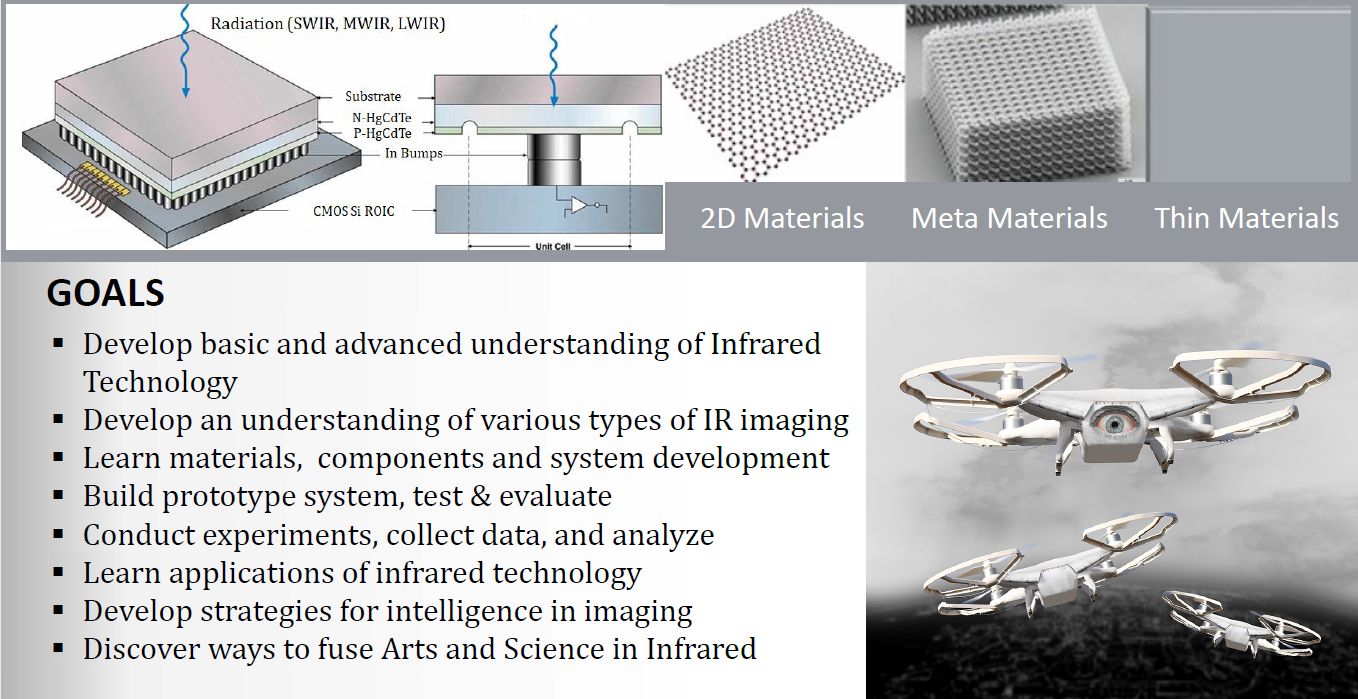Intelligent Vision Technology

Imaging is ubiquitous. Today we see CMOS cameras everywhere including in cell phones. Every year, more and more pixels are added to the cell phone cameras for taking better and higher resolution images and videos. However, these cameras do not work in the dark. What if we can see in the dark? Infrared (IR) technology allows us to design cameras and imaging systems that can see in complete darkness. Beyond being able to see in dark, more importantly, IR technology is making tremendous impact in many commercial and military sectors such as medical, manufacturing, transportation, surveillance, security, agriculture, arts and a multitude of other areas. In the near future IR technology will be an important driver in automation, smart cities and military bases, biometrics, safety and security, medical diagnostics such as sudomotor responses for assessing PTSD, depression and cancers, smart manufacturing and a plethora of other important applications. Advances in infrared sciences is now emerging as the “new frontier in imaging sciences” at the intersection of arts, neuromorphic computing, materials by design and artificial intelligence (AI).
In this VIP team, students will work first-hand with infrared science and technology, helping to develop IR materials, detectors and focal plane arrays (FPAs), camera optics, system design, metrology and practical applications of IR. Topic areas include but not limited to advanced IR materials, detectors and FPAs, methods to test components, cooled and uncooled camera technologies, cryogenics, camera optics design, characterization, Read-out circuit design, applications of AI and image processing, practical understanding of camera electronics as well as other areas.
Projects will include:
- Developing basic and advanced understanding of various types of IR imaging technologies
- Developing an understanding of good engineering practices for conducting empirical experiments, collecting data, and analyzing data
- Develop hardware and software related to imaging components and systems
- Develop skills and knowledge in using camera design software tools
- Building prototype systems for test & evaluation and demonstrations
- Participating in field trips and potentially in internship at industry and Government Labs
Interested? Contact Prof. Nibir Dhar